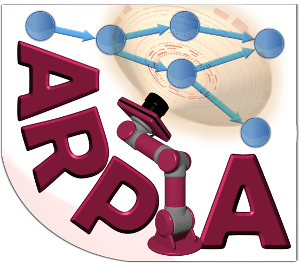Abstract
Many current challenges of society (both at the general and individual levels) require to develop new cyber-physical systems that exhibit a level of autonomy higher than the one of current systems. Examples can be found in many applications, such as: cities management, personal assistants, robotics (home care, household, office, or depots), logistics planning, game development, or security management. These systems must include functionalities such as perception, representation, reasoning, acting and learning, which allow them to act autonomously.
The long-term goal of (semi-)autonomous systems is a highly ambitious objective for many fields, including Artificial Intelligence or Robotics. In this project, we are interested in building intelligent assistive technology in environments where observed data corresponds to sequences of activities performed by an agent. Hence, the data provides indirect information on the agent’s beliefs, actions, goals and/or plans that lead it to carry out those activities. We hypothesize that we can efficiently build models of those activities to help future decisions.
Application domains
We will focus on: intelligent digital assistants, that could provide better-valued goals or recommendation of alternative higher-utility plans in tourism; robotic-based assistance at home, for helping elders or generic tasks; and traffic management to help smart cities decision making. We thus expect the project will have a significant impact in the development of future systems exhibiting some kind of autonomous (or autonomic) behavior.
